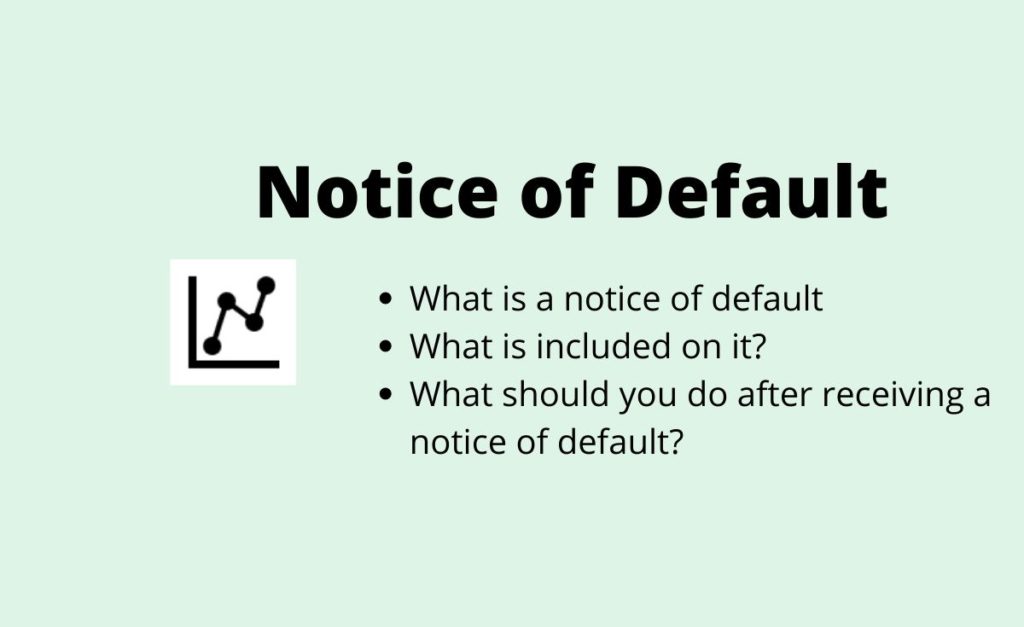What is a notice of default?
A notice of default is a letter from the moneylender addressed to the borrower after failing to make their monthly payments. This letter warns the borrower that the terms of the loan or mortgage have been violated and the borrower must take proper steps to avoid severe outcomes from this violation.
Your lender will file the notice of default with the local government office or county where the property is located. This step is very serious and without resolving the issue, the borrower can lose the property. For example, a bank will activate the foreclosure process if the owner of the house does not meet the required steps included in the letter.
What information is included in the notice of default?
The notice of default will include information about the borrower, the lender, the property, and the nature of the default. As noted by Investopedia, the following are the information you would expect from a notice of default letter.
- Legal names and addresses of borrower and lender
- Address of the asset in question
- Description of the default and steps to be taken to resolve the issue
- Action to be taken by the lender if the borrower fails to resolve the issue
- Deadlines for those actions
What happens after receiving a notice of default?
After receiving a notice of default, the borrower must do whatever it takes to mitigate the problem. The lender will include in the letter steps needed to fix this problem. As a borrower, it is your responsibility to follow those steps and meet each one of them.
There are times when you cannot meet all requirements. In this case, you must work with your lender to come up with proper ways to fix it. For example, most lenders will require you to pay all the amount you owe them instead of regular installments, according to StepChange.org.
Not everyone can find this kind of money at once. If your lender is flexible, you may work together and put in a place a payment structure that allows you to catch up on your payments.
If you cannot find a common solution, the lender will follow the terms included in your contract to get their money back. In real estate, for example, a foreclosure is common to defaulted homeowners. However, other forms of actions could be taken such as passing the debt to a debt collector agency or taking other necessary court routes to recover the money, as noted by StepChange.org.









